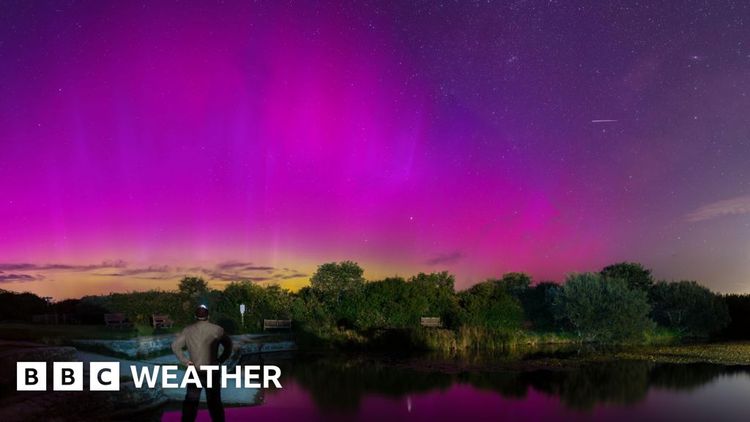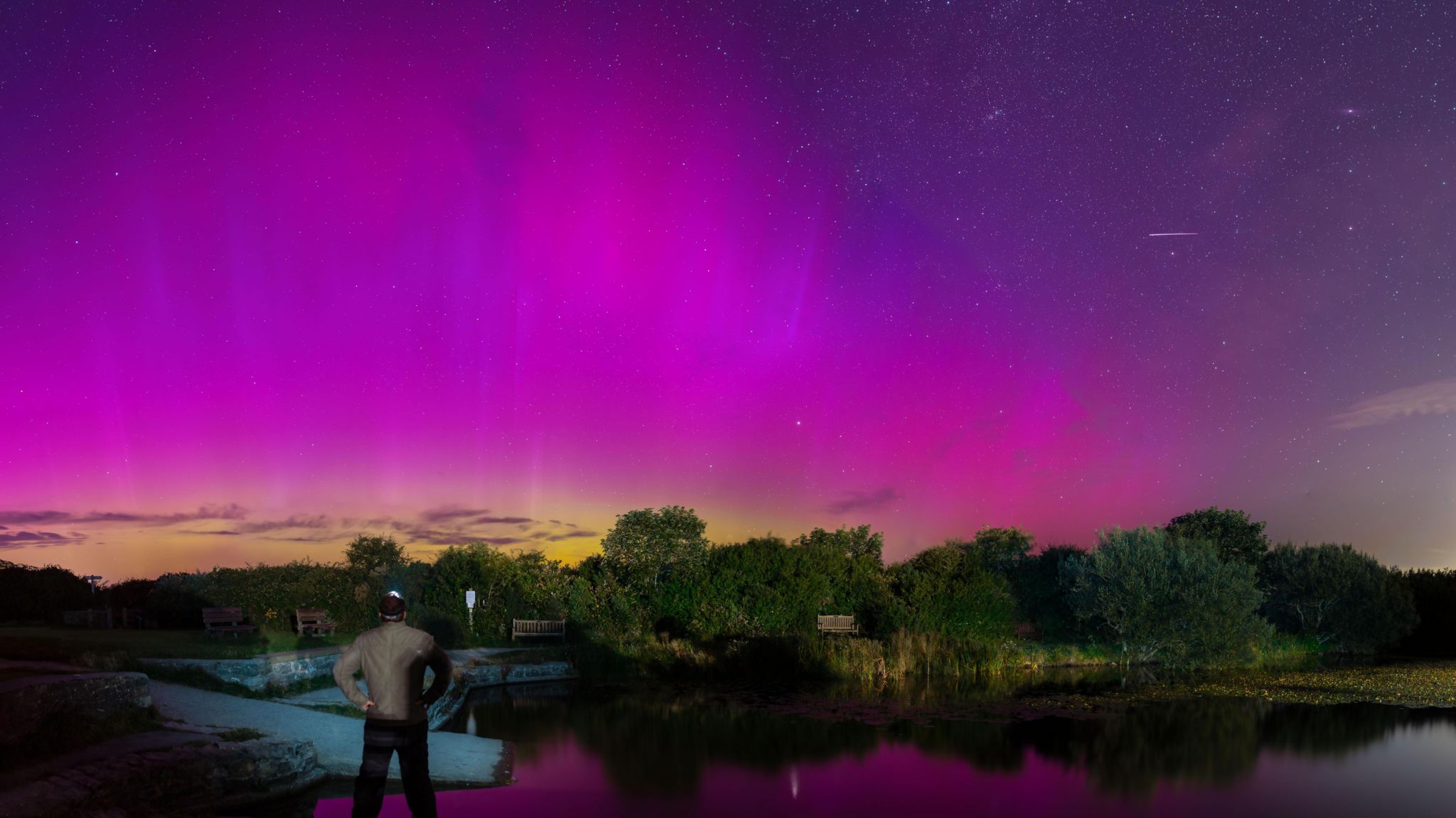Northern lights UK: Stunning display right across the country

Northern Lights Light Up Skies Down To Cornwall
Picture credit goes to the BBC Weather Watchers / Geraint

Observers of the night sky were able to witness the Northern lights as well as the peak of the Perseid meteor shower, like in Holyhead, Anglesey.
Breathtaking shows of the Aurora Borealis have been observed all over the United Kingdom, aligning with the Perseid meteor shower for the second consecutive night.
The aurora display could be seen as far south as Cornwall, lighting up the skies.
The Northern lights, also known as aurora borealis, have been showing up frequently in the UK lately. However, a very severe geomagnetic storm is needed for them to be seen in southern England.
Due to the increased solar activity, there will be more opportunities to witness the aurora in the upcoming months.
Picture credit, BBC Weather Watchers / Rossi
The vibrant green hues of the aurora are stunningly displayed in this photo taken in the Highlands, resembling a surreal moment straight out of a science fiction film.
The Aurora Borealis can be seen as vibrant, swirling curtains of light in the dark sky, displaying colors from green to pink and red.
The Northern Lights occur when particles with electric charge from the sun collide with gases in Earth's atmosphere.
Northern Lights happen near the top of the world when the stream of energy from the sun contains particles that mix with the Earth's magnetic field.
The most stunning light shows happen when the Sun releases huge clouds of particles known as coronal mass ejections.
Picture credit goes to BBC Weather Watchers and user art_sea_craft_sea_ellie.
The phenomenon of aurora borealis was photographed in Cornwall on Monday evening by a member of our BBC Weather Watchers community.
The aurora begins at the poles and moves towards the south (in the northern hemisphere). Depending on how strong it is, people in Scotland can sometimes see the aurora in the sky.
It is less common to observe it in the southern part of England.
But as the Sun is becoming more active, there have been increases in the frequency of strong activity.
This has led to the aurora being visible in parts of southern England a few times this year.
The sun got more active as Monday afternoon went on, causing a strong G3 geomagnetic storm. This meant that there was a good chance people in the UK would be able to see the Northern Lights without any special equipment during the night.
The BBC Weather Watchers received numerous images of the Northern lights from people who went outside between 10pm and 1am.
Picture taken by a participant in the BBC Weather Watchers program named Ruth Davies
Amazing evening sky filled with the northern lights in Llandegla, Denbighshire
There have been other impressive sights in the night sky besides the Northern lights.
In recent nights, we experienced the height of the Perseid meteor shower, where we could potentially see around 100 shooting stars.
People who went outside on Sunday night to observe the shooting stars were also fortunate enough to witness a surprising display of northern lights.
Taking a photo of meteors and the aurora in one shot was described to me as the ultimate goal.
Photo credit: BBC Weather Watchers / The Fizzery
The Perseid meteor shower delighted astronomy enthusiasts on Monday evening as well, offering a spectacular sight in the night sky.
Are Northern Lights Or Perseids Visible Tonight?
The intense geomagnetic storm that happened on Monday night has calmed down, but the Met Office Space Weather predictions suggest that there might be a small rise in activity once more overnight leading into Wednesday morning.
The aurora activity on Sunday and Monday night was strong, but it is not expected to be as grand in the upcoming days. This means that the northern parts of the UK may experience limited aurora sightings.
Wednesday's activity is expected to return to normal levels with no major changes expected.
Regarding the Perseid meteor shower, the highest point of activity occurred on Monday and it quickly decreases afterwards.
Therefore, although there may still be a handful of meteors that can be seen, the chances are significantly lower at this point.
Source of the image, BBC Weather Watchers / Paul Abbleby
Stunning northern lights visible in Craster, Northumberland on Monday evening
Picture credit, BBC Weather Watchers / Jonnymo
The Aurora Borealis was spotted in Shropshire.









































